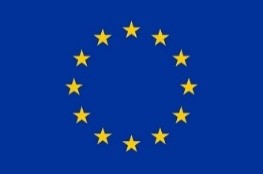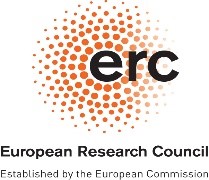References
Ávila-Gutiérrez, M. J., Martín-Gómez, A., Aguayo-González, F., & Lama-Ruiz, J. R. (2020). Eco-holonic 4.0 circular business model to conceptualize sustainable value chain towards digital transition. Sustainability (Switzerland), 12(5), 1–32. https://doi.org/10.3390/SU12051889
Search via ReFindit
Bag, S., Dhamija, P., Gupta, S., & Sivarajah, U. (2020). Examining the role of procurement 4.0 towards remanufacturing operations and circular economy. Production Planning and Control. https://doi.org/10.1080/09537287.2020.1817602
Search via ReFindit
Bag, S., Gupta, S., & Kumar, S. (2021). Industry 4.0 adoption and 10R advance manufacturing capabilities for sustainable development. International Journal of Production Economics, 231. https://doi.org/10.1016/J.IJPE.2020.107844
Search via ReFindit
Bag, S., Wood, L. C., Mangla, S. K., & Luthra, S. (2020). Procurement 4.0 and its implications on business process performance in a circular economy. Resources, Conservation and Recycling, 152. https://doi.org/10.1016/J.RESCONREC.2019.104502
Search via ReFindit
Belkadi, F., Dhuieb, M. A., Aguado, J. V., Laroche, F., Bernard, A., & Chinesta, F. (2020). Intelligent assistant system as a context-aware decision-making support for the workers of the future. Computers and Industrial Engineering, 139. https://doi.org/10.1016/J.CIE.2019.02.046
Search via ReFindit
Bessant, J., & Francis, D. (2005). Transferring soft technologies: exploring adaptive theory. International Journal of Technology Management & Sustainable Development, 4(2), 93–112. https://doi.org/10.1386/IJTM.4.2.93/1
Search via ReFindit
Bressanelli, G., Saccani, N., Perona, M., & Baccanelli, I. (2020). Towards circular economy in the household appliance industry: An overview of cases. Resources, 9(11), 1–23. https://doi.org/10.3390/RESOURCES9110128
Search via ReFindit
Brown, P., Bocken, N., & Balkenende, R. (2020). How do companies collaborate for circular oriented innovation? Sustainability (Switzerland), 12(4). https://doi.org/10.3390/SU12041648
Search via ReFindit
Cantele, S., Moggi, S., & Campedelli, B. (2020). Spreading sustainability innovation through the co-evolution of sustainable business models and partnerships. Sustainability (Switzerland), 12(3). https://doi.org/10.3390/SU12031190
Search via ReFindit
Cesur, E., Cesur, M. R., Kayikci, Y., & Mangla, S. K. (2020). Optimal number of remanufacturing in a circular economy platform. International Journal of Logistics Research and Applications. https://doi.org/10.1080/13675567.2020.1825656
Search via ReFindit
Chehabeddine, M. R., Grabowska, S., Adekola, A. F. (2022). Building a model for securing regional development from ecological threats, Insights into Regional Development, 4(2), 22-40. https://doi.org/10.9770/IRD.2022.4.2(2)
Search via ReFindit
Chen, M., Zhang, L., Teng, F., Dai, J., Li, Z., Wang, Z., & Li, Y. (2020). Climate technology transfer in BRI era: needs, priorities, and barriers from receivers' perspective. Ecosystem Health and Sustainability, 6(1), 1–12. https://doi.org/10.1080/20964129.2020.1780948
Search via ReFindit
Chen, Y., Li, Y., & Li, C. (2020). Electronic agriculture, blockchain and digital agricultural democratization: Origin, theory and application. Journal of Cleaner Production, 268. https://doi.org/10.1016/J.JCLEPRO.2020.122071
Search via ReFindit
Chiappetta Jabbour, C. J., Fiorini, P. D. C., Ndubisi, N. O., Queiroz, M. M., & Piato, É. L. (2020). Digitally-enabled sustainable supply chains in the 21st century: A review and a research agenda. Science of the Total Environment, 725. https://doi.org/10.1016/J.SCITOTENV.2020.138177
Search via ReFindit
Ciulli, F., Kolk, A., & Boe-Lillegraven, S. (2020). Circularity Brokers: Digital Platform Organizations and Waste Recovery in Food Supply Chains. Journal of Business Ethics, 167(2), 299–331. https://doi.org/10.1007/S10551-019-04160-5
Search via ReFindit
De Bernardi, P., Azucar, D., Forliano, C., & Franco, M. (2020). Innovative and sustainable food business models. Contributions to Management Science, 189–221. https://doi.org/10.1007/978-3-030-33502-1_7
Search via ReFindit
Del Giudice, M., Chierici, R., Mazzucchelli, A., & Fiano, F. (2020). Supply chain management in the era of circular economy: the moderating effect of big data. International Journal of Logistics Management, 32(2), 337–356. https://doi.org/10.1108/IJLM-03-2020-0119
Search via ReFindit
Edwin Cheng, T. C., Kamble, S. S., Belhadi, A., Ndubisi, N. O., Lai, K. hung, & Kharat, M. G. (2021). Linkages between big data analytics, circular economy, sustainable supply chain flexibility, and sustainable performance in manufacturing firms. International Journal of Production Research. https://doi.org/10.1080/00207543.2021.1906971
Search via ReFindit
Farelnik, E. (2021). Revitalisation as a tool for the development of slow city (Cittaslow). Entrepreneurship and Sustainability Issues, 9(2), 169-185. http://doi.org/10.9770/jesi.2021.9.2(11)
Search via ReFindit
Garrido-Hidalgo, C., Ramirez, F. J., Olivares, T., & Roda-Sanchez, L. (2020). The adoption of Internet of Things in a Circular Supply Chain framework for the recovery of WEEE: The case of Lithium-ion electric vehicle battery packs. Waste Management, 103, 32–44. https://doi.org/10.1016/J.WASMAN.2019.09.045
Search via ReFindit
Ghisellini, P., Cialani, C., & Ulgiati, S. (2016). A review on circular economy: The expected transition to a balanced interplay of environmental and economic systems. Journal of Cleaner Production, 114, 11–32. https://doi.org/10.1016/J.JCLEPRO.2015.09.007
Search via ReFindit
González-Varona, J. M., Poza, D., Acebes, F., Villafáñez, F., Pajares, J., & López-Paredes, A. (2020). New business models for sustainable spare parts logistics: A case study. Sustainability (Switzerland), 12(8), 3071. https://doi.org/10.3390/SU12083071
Search via ReFindit
Guo, R., Lv, S., Liao, T., Xi, F., Zhang, J., Zuo, X., … Zhang, Y. (2020). Classifying green technologies for sustainable innovation and investment. Resources, Conservation and Recycling, 153. https://doi.org/10.1016/J.RESCONREC.2019.104580
Search via ReFindit
Haziri, L. L., Sundin, E., & Sakao, T. (2019). Feedback from remanufacturing: Its unexploited potential to improve future product design. Sustainability (Switzerland), 11(15). https://doi.org/10.3390/SU11154037
Search via ReFindit
Khan, I. S., Ahmad, M. O., & Majava, J. (2021). Industry 4.0 and sustainable development: A systematic mapping of triple bottom line, Circular Economy and Sustainable Business Models perspectives. Journal of Cleaner Production, 297. https://doi.org/10.1016/J.JCLEPRO.2021.126655
Search via ReFindit
Kirchherr, J., & Urban, F. (2018). Technology transfer and cooperation for low carbon energy technology: Analysing 30 years of scholarship and proposing a research agenda. Energy Policy, 119, 600–609. https://doi.org/10.1016/J.ENPOL.2018.05.001
Search via ReFindit
Kristoffersen, E., Blomsma, F., Mikalef, P., & Li, J. (2020). The smart circular economy: A digital-enabled circular strategies framework for manufacturing companies. Journal of Business Research, 120, 241–261. https://doi.org/10.1016/J.JBUSRES.2020.07.044
Search via ReFindit
Lopes de Sousa Jabbour, A. B., Jabbour, C. J. C., Godinho Filho, M., & Roubaud, D. (2018). Industry 4.0 and the circular economy: a proposed research agenda and original roadmap for sustainable operations. Annals of Operations Research, 270(1–2), 273–286. https://doi.org/10.1007/S10479-018-2772-8
Search via ReFindit
Ma, S., Zhang, Y., Liu, Y., Yang, H., Lv, J., & Ren, S. (2020). Data-driven sustainable intelligent manufacturing based on demand response for energy-intensive industries. Journal of Cleaner Production, 274. https://doi.org/10.1016/J.JCLEPRO.2020.123155
Search via ReFindit
Melander, L., & Pazirandeh, A. (2019). Collaboration beyond the supply network for green innovation: insight from 11 cases. Supply Chain Management, 24(4), 509–523. https://doi.org/10.1108/SCM-08-2018-0285
Search via ReFindit
Moreno, M., Court, R., Wright, M., & Charnley, F. (2019). Opportunities for redistributed manufacturing and digital intelligence as enablers of a circular economy. International Journal of Sustainable Engineering, 12(2), 77–94. https://doi.org/10.1080/19397038.2018.1508316
Search via ReFindit
Nagy, J., Oláh, J., Erdei, E., Máté, D., & Popp, J. (2018). The role and impact of industry 4.0 and the internet of things on the business s trategy of the value chain-the case of hungary. Sustainability (Switzerland), 10(10). https://doi.org/10.3390/SU10103491
Search via ReFindit
Nandi, S., Sarkis, J., Hervani, A. A., & Helms, M. M. (2021). Redesigning Supply Chains using Blockchain-Enabled Circular Economy and COVID-19 Experiences. Sustainable Production and Consumption, 27, 10–22. https://doi.org/10.1016/J.SPC.2020.10.019
Search via ReFindit
Nandi, S., Sarkis, J., Hervani, A., & Helms, M. (2021). Do blockchain and circular economy practices improve post COVID-19 supply chains? A resource-based and resource dependence perspective. Industrial Management and Data Systems, 121(2), 333–363. https://doi.org/10.1108/IMDS-09-2020-0560
Search via ReFindit
Napiórkowska-Baryła, A., & Świdyńska, N. (2021). Factors affecting housing conditions: a case study of Cittaslow towns in Poland. Entrepreneurship and Sustainability Issues, 9(2), 94-107. http://doi.org/10.9770/jesi.2021.9.2(6)
Search via ReFindit
Nara, E. O. B., da Costa, M. B., Baierle, I. C., Schaefer, J. L., Benitez, G. B., do Santos, L. M. A. L., & Benitez, L. B. (2021). Expected impact of industry 4.0 technologies on sustainable development: A study in the context of Brazil's plastic industry. Sustainable Production and Consumption, 25, 102–122. https://doi.org/10.1016/J.SPC.2020.07.018
Search via ReFindit
Ortega-Lapiedra, R., Marco-Fondevila, M., Scarpellini, S., & Llena-Macarulla, F. (2019). Measurement of the Human Capital Applied to the Business Eco-Innovation. Sustainability, 11(12), 3263. https://doi.org/10.3390/SU11123263
Search via ReFindit
Ozkan-Ozen, Y. D., Kazancoglu, Y., & Kumar Mangla, S. (2020). Synchronized Barriers for Circular Supply Chains i n Industry 3.5/Industry 4.0 Transition For Sustainable Resource Management. Resources, Conservation and Recycling, 161. https://doi.org/10.1016/J.RESCONREC.2020.104986
Search via ReFindit
Poponi, S., Arcese, G., Mosconi, E. M., & Di Trifiletti, M. A. (2020). Entrepreneurial drivers for the development of the circular business model: The role of academic spin-Off. Sustainability (Switzerland), 12(1). https://doi.org/10.3390/SU12010423
Search via ReFindit
Rajput, S., & Singh, S. P. (2020). Industry 4.0 Model for circular economy and cleaner production. Journal of Cleaner Production, 277. https://doi.org/10.1016/J.JCLEPRO.2020.123853
Search via ReFindit
Razminiene, K., & Tvaronavičiene, M. (2018). Detecting The Linkages Between Clusters And Circular Economy. Terra Economicus, 16(4), 50–65. https://doi.org/10.23683/2073-6606-2018-16-4-50-65
Search via ReFindit
Ritter, T., & Pedersen, C. L. (2020). Digitization capability and the digitalization of business models in business-to-business firms: Past, present, and future. Industrial Marketing Management, 86, 180–190. https://doi.org/10.1016/J.INDMARMAN.2019.11.019
Search via ReFindit
Rossi, J., Bianchini, A., & Guarnieri, P. (2020). Circular economy model enhanced by intelligent assets from industry 4.0: The proposition of an innovative tool to analyze case studies. Sustainability (Switzerland), 12(17). https://doi.org/10.3390/SU12177147
Search via ReFindit
Ruel, S., Shaaban, S., & Ducros, M. (2019). Supply chain vulnerability: contributions from an edifying case study. Journal of Enterprise Information Management, 32(2), 214–232. https://doi.org/10.1108/JEIM-05-2018-0086
Search via ReFindit
Sandvik, I. M., & Stubbs, W. (2019). Circular fashion supply chain through textile-to-textile recycling. Journal of Fashion Marketing and Management, 23(3), 366–381. https://doi.org/10.1108/JFMM-04-2018-0058
Search via ReFindit
Santoro, G., Vrontis, D., Thrassou, A., & Dezi, L. (2018). The Internet of Things: Building a knowledge management system for open innovation and knowledge management capacity. Technological Forecasting and Social Change, 136, 347–354. https://doi.org/10.1016/J.TECHFORE.2017.02.034
Search via ReFindit
Sarkis, J., Kouhizadeh, M., & Zhu, Q. S. (2021). Digitalization and the greening of supply chains. Industrial Management and Data Systems, 121(1), 65–85. https://doi.org/10.1108/IMDS-08-2020-0450
Search via ReFindit
Truant, E., Broccardo, L., & Dana, L. P. (2021). Digitalisation boosts company performance: an overview of Italian listed companies. Technological Forecasting and Social Change, 173. https://doi.org/10.1016/J.TECHFORE.2021.121173
Search via ReFindit
Unterfrauner, E., Shao, J., Hofer, M., & Fabian, C. M. (2019). The environmental value and impact of the Maker movement—Insights from a cross-case analysis of European maker initiatives. Business Strategy and the Environment, 28(8), 1518–1533. https://doi.org/10.1002/BSE.2328
Search via ReFindit
Wilson, M., Paschen, J., & Pitt, L. (2021). The circular economy meets artificial intelligence (AI): understanding the opportunities of AI for reverse logistics. Management of Environmental Quality: An International Journal. https://doi.org/10.1108/MEQ-10-2020-0222
Search via ReFindit
Wu, K. J., Gao, S., Xia, L., Tseng, M. L., Chiu, A. S. F., & Zhang, Z. (2019). Enhancing corporate knowledge management and sustainable development: An inter-dependent hierarchical structure under linguistic preferences. Resources, Conservation and Recycling, 146, 560–579. https://doi.org/10.1016/j.resconrec.2019.03.015
Search via ReFindit
Yadav, G., Luthra, S., Jakhar, S. K., Mangla, S. K., & Rai, D. P. (2020). A framework to overcome sustainable supply chain challenges through solution measures of industry 4.0 and circular economy: An automotive case. Journal of Cleaner Production, 254. https://doi.org/10.1016/J.JCLEPRO.2020.120112
Search via ReFindit












 RSS 1.0
RSS 1.0